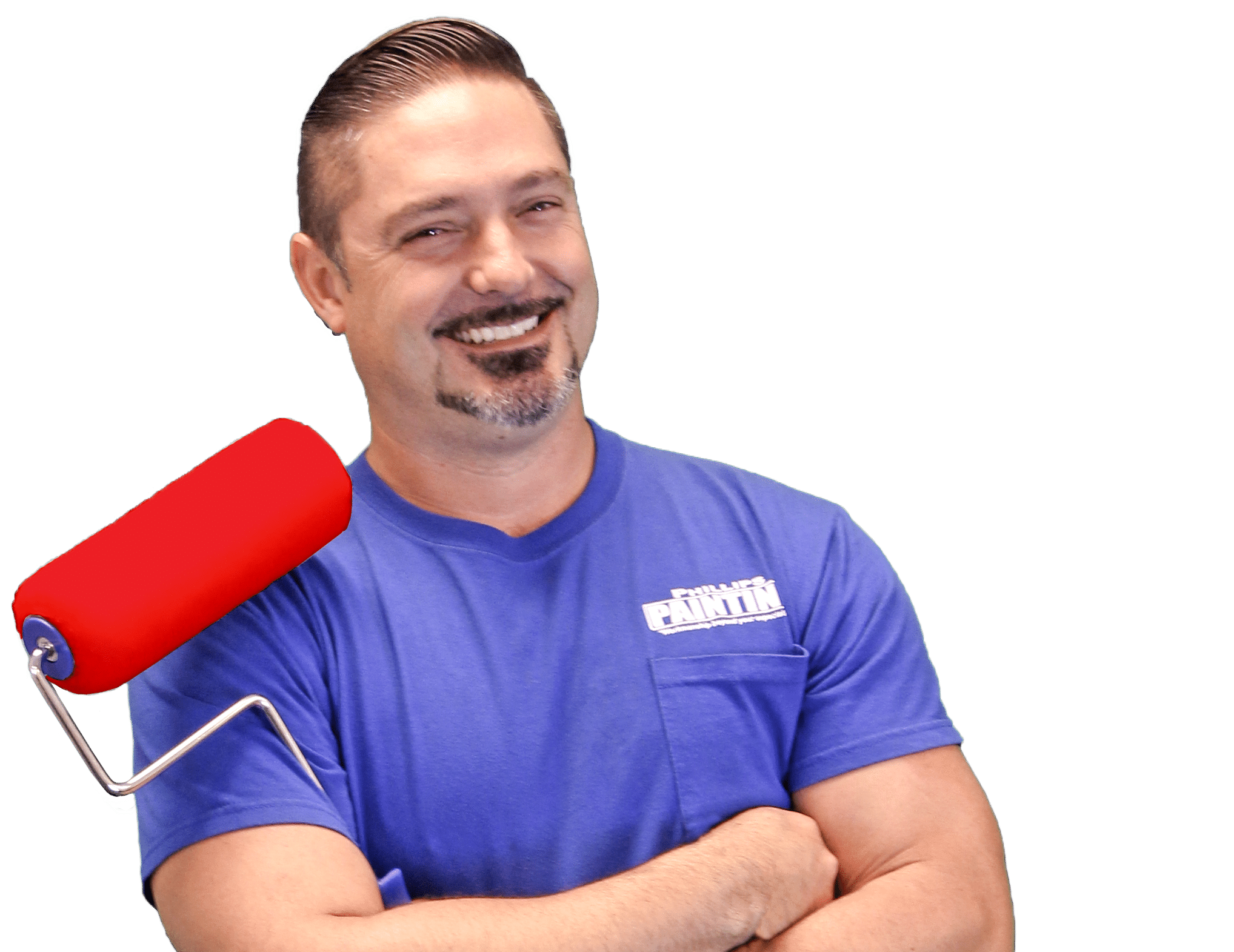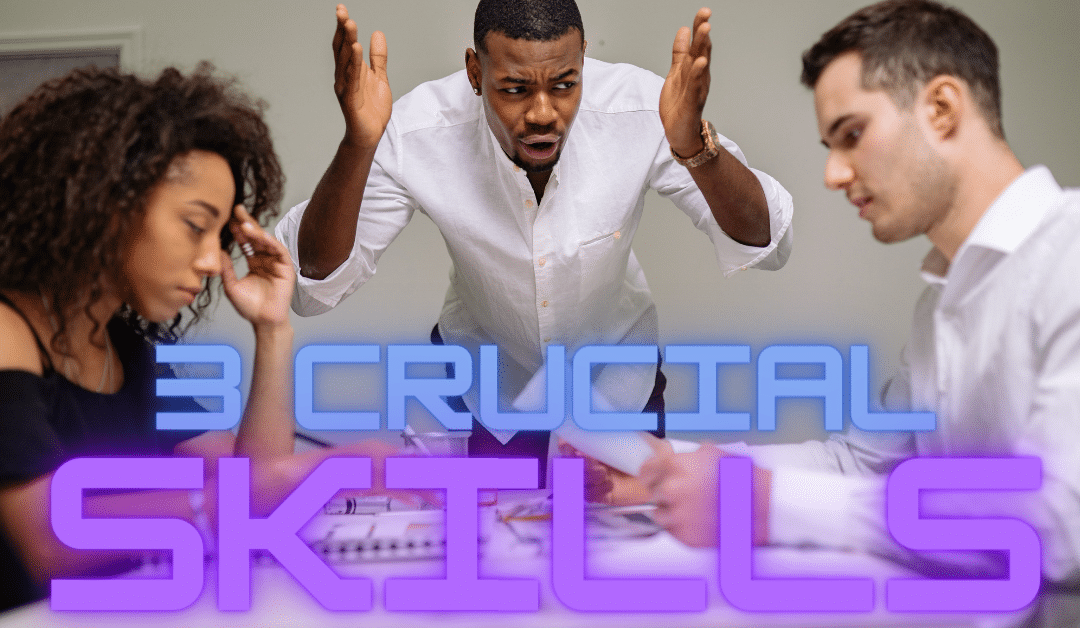As a leader, you have the ability and responsibility to make a positive impact on your company and its people. You can do this by building leadership skills that will help you go from good to great, and your impact will go beyond the workplace and into their personal lives as well. Although there’s a distinct difference between leadership and management, for this blog post I’m lumping them together. The skills we’ll discuss apply equally. Heck, they even apply to parenting and marriage.
The Underdeveloped Skills
We always hear about upgrading our technical skills or planning skills or goal-setting skills, but we rarely place an emphasis on improving our soft skills. We say “soft skills”, but in reality, they are just “people skills“…nothing more and nothing less.
As a leader, your success is limited by your soft skills, not your technical skills
Where to start
You can start a lot of places, but I’ll share with you where I started and what worked for me. For me, it was a single statement in a book by John C. Maxwell. He said that after his speaking engagements he is often asked, “What can I do to improve my organization?” His answer is always the same, “If you want to improve your organization, start with you.” I took that to heart. I knew that if I wanted to improve my company, get better results, and see my future dreams come true, I better start with myself and become a better leader.
My Journey
To become a better leader, I needed to become a better reader. I’ll share that with you later because it is an entire story on its own.
So I became a reader, and I began to devour books, videos, and seminars. I became obsessed with self-improvement. I was so zealous, that I often left my people so far behind that they could not even see my taillights, and that’s not because they did not want to keep up, but they were covered up in the whirlwind of day-to-day responsibilities and did not have the freedom of time that I had.
#1 Personality Profiles
On my journey, I discovered personality profiles. I went through several, including Strength Finder 2.0, Myers-Briggs Type Indicator, DISC, Kolbe A Index, and even the Enneagram. They all added value to me and brought a new level of self-awareness, but I found the most value in the DISC assessments because they were less complicated, required less interpretation, and had easy-to-read graphs. However, and most importantly, DISC was set apart in two main areas. Firstly, it taught me how to adapt my communication style to others, and secondly, DISC is easy to teach others quickly. The language of DISC is commonplace in my business and even among my children. Although I have two certifications in DISC, none of them have even one, save my Human Resources Manager, and they all have a basic understanding of personality profiles based on the DISC assessments. This knowledge and skill have dramatically improved my leadership and communication skills…I mean real relationship improvements, in my business and home life. This is the very first place I recommend you start. You can find DISC assessments all over the internet, and wading through them is a chore. Never fear though. Keep reading until the end, and I’ll share with you the DISC assessments I use in my own company, and the pricing is very fair compared to many others.
#2 Emotional Intelligence
The next skill to work on is Emotional Intelligence. Emotional Intelligence or EQ is vital for leadership success. Author Travis Bradberry says that EQ is your ability to identify and understand emotions in yourself and those around you and to use this awareness to adapt your responses and manage relationships. The authors indicate that “EQ is so critical to success that it accounts for 58 percent of performance in all types of jobs. It’s the single biggest predictor of performance in the workplace and the strongest driver of leadership and personal excellence.” Emotional Intelligence 2.0 (pp. 19-20). TalentSmart. Kindle Edition.
Rather than try and explain the entire book to you here, I’m going to recommend that you go ahead a grab a copy from Amazon. It’s available in paperback, Kindle, and Audible*.
* Full disclosure, those are affiliate links, and I may earn a small commission when you make a purchase. I’m not doing this for the money, and I would not be taking the time to write about it unless I really felt it would help you the way it helped me. My time in writing this is far more valuable than any snack money I may earn when and if you make a purchase.
#3 Crucial Conversations
A crucial conversation is a conversation in which the stakes are high and are often emotionally charged. We need to be on our A-game for these, but we are typically operating at our worst, being led by our lizard brains. Think about the conversations that you hate to have. The ones you tend to avoid. The ones that will likely end in a fight or argument. These are often the most crucial conversations that we can have, and we need the tools to handle these conversations with expertise. That’s where the book “Crucial Conversations: Tools for Talking When Stakes Are High” comes in. This book literally walks you through how to handle these conversations effectively. And guess what…these skills will make a difference in all areas of your life, not just work.
Ok, you can find that book on Kindle, paperback, and Audible.
Here’s your action plan
- Order a DISC personality assessment for yourself. I recommend just getting the “STANDARD Adult” version for now. Take it, read it thoroughly. Read it again in 30 days, and then again in 90 days, and then in a year. Keep it handy and refer to it regularly.
- Grab your copy of Emotional Intelligence 2.0 so you have it ready when you are ready to start.
- Get your copy of Crucial Conversations so you have it ready also.
Get all the resources above, but do not try to do them all at the same time. Start with DISC, then move to EQ or Crucial Conversations next. Do not just blow through these. These are not books to just read. These are tools to implement in your life. Take your time. You’ll likely end up reading these books 2-3 times each.
And for a BONUS, order a DISC Assessment for your employees, your spouse, and there’s even a Child and Teen version of the DISC assessments for your children.
In Conclusion
You can use these tools to literally upgrade your life and leadership.
The bonus beauty of these three skills is that they don’t just improve one single area of your life. They improve relationships in every area of your life. Invest in yourself. Invest in your relationships. You’ll be better. You’ll be a better leader. You’ll make those around you better too.


Recent Comments